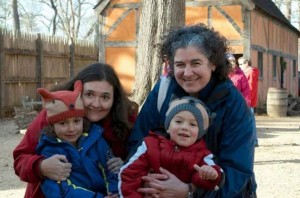
It was supposed to be as much a day about celebration as it was one of unification: In a case being followed worldwide, Colombia’s Constitutional Court granted the partner of one couple, university professor Veronica Botero, the right to adopt the artificially inseminated children of Ana Leiderman, her spouse, in 2014. But seven months later, and all because a local autonomous judge has refused to comply, the family remains in legal limbo, per Trust.org.remains a conundrum
If it sounds familiar, it should. Dozens, perhaps hundreds, of couple are or have been in a similar situation in Alabama where, despite the ruling of a higher court, couples are not being allowed to get married or obtain marriage licenses.
“It’s about two adults wanting to protect their children and give them the legal protection that comes with being recognized as a family under law. That’s why we decided to file the lawsuit,” Leiderman, 46, told the Thomson Reuters Foundation. “The court said a gay couple is a family and that being gay isn’t an impediment for adoption. But the court’s decision has yet to be approved by a local judge, who has autonomy. It’s still not certain we will receive the adoption papers.”
Colombia, with its rich intellectual traditions and world-class beaches, is still mired in ultra-conservative church orthodoxy. According to a poll cited in the article, “The survey by the Electoral Observation Mission, a Colombian non-governmental organization, 71 percent of Congress members are against granting gay couples full adoption rights, while 53 percent of those polled said they disapprove of gay marriage.
But others remain optimistic. Mauricio Albarracin, head of Colombia Diversa, an LGBT group, sees theirs as a legal strategy. “We’ll take the fight again to the Constitutional Court,” Mauricio Albarracin, head of Colombia Diversa, told the Thomson Reuters Foundation. “Our main argument is that our rights, as enshrined in Colombia’s 1991 constitution, are being violated. Current laws discriminate against same-sex couples and violate their human dignity,” Albarracin, a lawyer, said.
The reality on the ground looks less so. After all the Colombian Constitutional Court ruled back in 2011 that same-sex unions but the lawmakers have still failed to pass a marriage equality bill.
For Leiderman and Botero, the wait continues. For the hundreds of others? ¡Qué pena!











